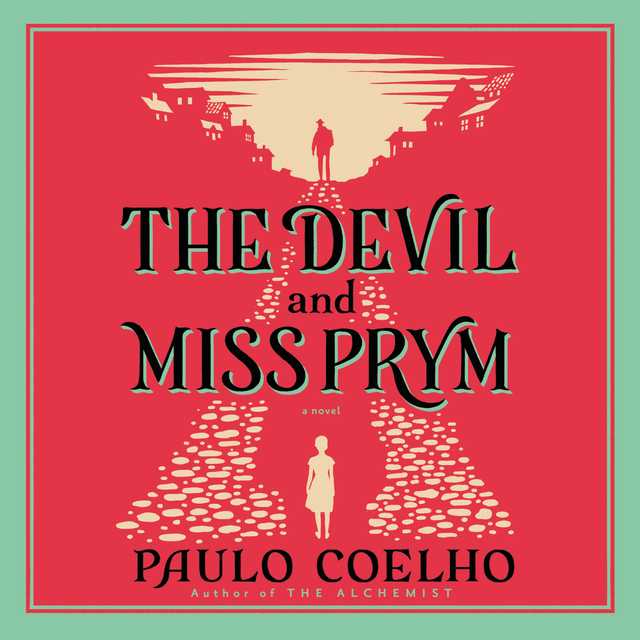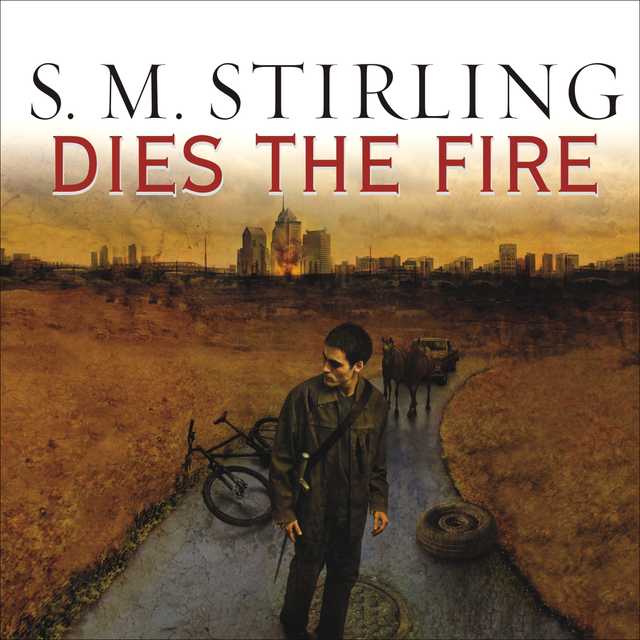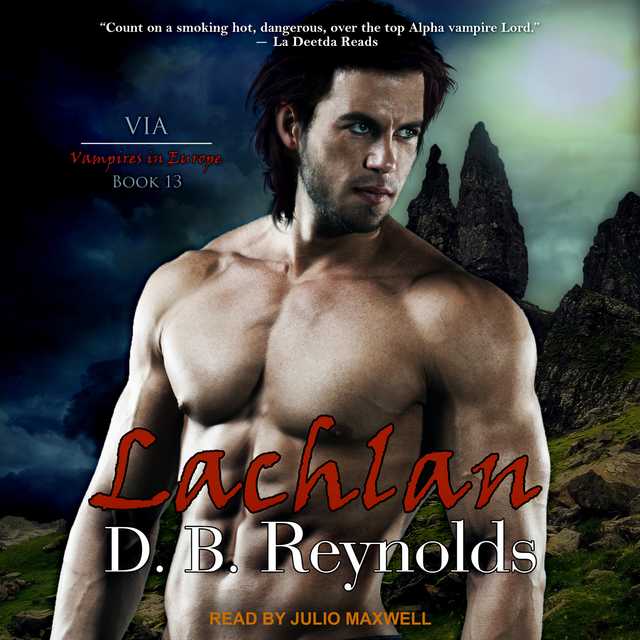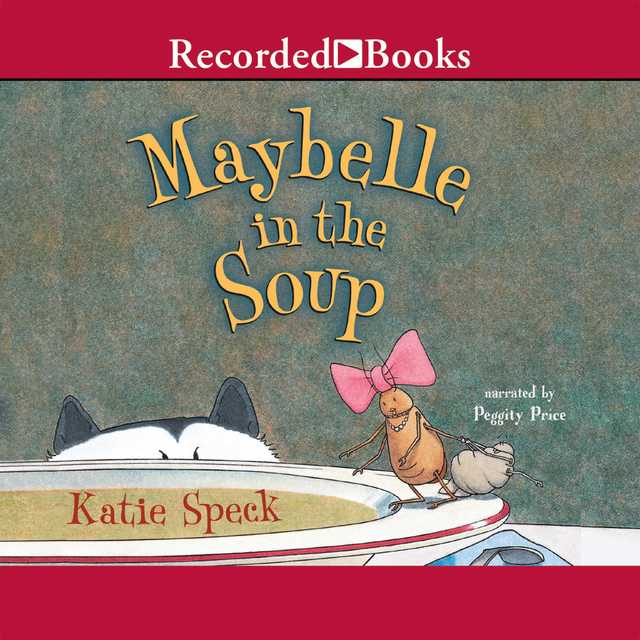The Devil and Miss Prym Audiobook Summary
From bestselling author and international sensation Paulo Coelho, a novel set in a small village about a young, poor barmaid whose wager with the devil leads to a spiritual transformation.
A stranger arrives at the remote village of Viscos, carrying with him a backpack containing a notebook and eleven gold bars. He comes searching for the answer to a question that torments him: Are human beings, in essence, good or evil? In welcoming the mysterious foreigner, the whole village becomes an accomplice to his sophisticated plot, which will forever mark their lives.
A novel of temptation, The Devil and Miss Prym is a thought-provoking parable of a community devoured by greed, cowardice, and fear–as it struggles with the choice between good and evil.
Other Top Audiobooks
The Devil and Miss Prym Audiobook Narrator
Linda Emond is the narrator of The Devil and Miss Prym audiobook that was written by Paulo Coelho
Linda Emond’s credits include The Sopranos, all four Law & Orders, and American Experience: John & Abigail Adams. On Broadway: 1776 and Life x 3 (Tony(r) nomination, Outer Critics Circle Award). Off-Broadway appearances include Tony Kushner’s Homebody/Kabul (Lucille Lortel Award, Obie Award).
About the Author(s) of The Devil and Miss Prym
Paulo Coelho is the author of The Devil and Miss Prym
More From the Same
- Author : Paulo Coelho
- Warrior of the Light
- The Pilgrimage
- Veronika Decides to Die
- Aleph
- The Pine Tree at St. Martin
- Publisher : HarperAudio
- Abraham
- American Gods [TV Tie-In]
- Dead Ringer
- House of Sand and Fog
- Prey
The Devil and Miss Prym Full Details
| Narrator | Linda Emond |
| Length | 4 hours 32 minutes |
| Author | Paulo Coelho |
| Category | |
| Publisher | HarperAudio |
| Release date | July 04, 2006 |
| ISBN | 9780061134760 |
Subjects
The publisher of the The Devil and Miss Prym is HarperAudio. includes the following subjects: The BISAC Subject Code is Fiction, Visionary & Metaphysical
Additional info
The publisher of the The Devil and Miss Prym is HarperAudio. The imprint is HarperAudio. It is supplied by HarperAudio. The ISBN-13 is 9780061134760.
Global Availability
This book is only available in the United States.
Goodreads Reviews
Ahmad
September 28, 2021
(Book 52 from 1001 books) - O Demônio e a Srta. Prym = The Devil And Miss Prym, Paulo CoelhoThe Devil and Miss Prym is a novel by Paulo Coelho, first published in Brazil in 2000. For almost fifteen years, old Berta had spent every day sitting outside, watching over the little village of Viscos and talking with her deceased husband. She is waiting for the devil to come, as her husband predicted. One day a stranger with a tragic past arrives with the intention of staying one week in the village and he buries 11 bars of gold in the woods. On the way back he meets the young barmaid Chantal Prym, who is bored of the idyllic scenery and slow pace of life. Regularly she seduces tourists in the hope that one of them will prove to be her escape route. The stranger shows her the buried treasure and promises that it will belong to the villagers if they agree to kill someone. A battle follows within the young woman follows between her angel and her devil. After some days, she decides to tell the villagers what the stranger has proposed, trusting that they will refuse. The people's reaction, however, plants the seed of doubt inside Chantal. Now she fears for her own life. As an act of desperation, she plans to abandon Viscos with one of the stranger's bars. Destiny sends a rogue wolf, which threatens Chantal's life, but she escapes with the stranger. Meanwhile the villagers assemble to choose their victim. The scapegoat they choose is Berta, since she is already old and serves no purpose in the village. Before the villagers shoot a sedated Berta, Chantal convinces them that under no circumstances is murder justified. Spoiler AlertIn the end the stranger receives the answers to his questions through a brief conversation between St. Savin and the Arab Leader Abah.تاریخ نخستین خوانش: سال 2003میلادیعنوان: شیطان و دوشیزه پریم؛ نویسنده: پائولو کوئیلو؛ برگردان آرش حجازی؛ تهران، کاروان، 1381، در 233ص؛ شابک 9647033109؛ چاپ هفتم 1383؛ موضوع داستانهای نویسندگان برزیل - سده 21م یک غریبه به روستای دور افتاده «ویسکوز» میرسد، همراهش کوله پشتی حاوی یک دفتر ضخیم، و یازده شمش طلا است؛ او به دنبال پاسخ به یک پرسش است که او را آزار میدهد: «آیا انسانها، در اصل، خوب یا بد هستند؟»؛ در دنیا دو مقوله ی «خیر» و «شر» وجود دارند، که همیشه در تضاد با هم هستند؛ در این کتاب، به همین دو مقوله پرداخته شده، که یکسوی آن خدای یگانه، و سوی دیگر شیطان؛ قرار داردنقل از یادداشت نویسنده: (نخستین «اسطوره ی شکاف»، در «ایران باستان» زاده شد: ایزد زمان «زروان» - پس از خلق گیتی، هماهنگی گرداگردش را دریافت، اما کمبود بسیار مهمی را احساس کرد - یک همراه، تا در این زیبایی با او سهیم شود؛ یکهزار سال برای آوردن پسری نیایش کرد؛ ...؛ اسطوره میگوید، از نیایش آغازین خدای زمان، نیکی -هورمزد- پدید آمد، و از پشیمانی اش، بدی -اهریمن- جفت همزاد «هورمزد» شد)؛ پایان نقل از یادداشت نویسندهتاریخ بهنگام رسانی 03/08/1399هجری خورشیدی؛ 06/07/1400هجری خورشیدی؛ ا. شربیانی
Andrei
March 14, 2017
Mie îmi place să cred (și -culmea- o fac cu tărie, inconștient fiind de puternicul subiectivism uneori) că lumea contemporană nu mai are scriitori. Are -poate- doar oameni care scriu, dar asta nu îi face scriitori. La "Diavolul și domnișoara Prym" mi-a plăcut decența și faptul că opera e scrisă la obiect: da, domnule! O antiteză între bine și rău pe intelesu' poporului. A scrie cu un scop, acela de a-l face pe cititor să diferențieze binele de rău în contrast cu psihicul protagonistului, nu e chiar o joacă de copii, iar Coelho contrastează asta foarte bine. El este unul dintre scriitorii care -în opinia mea- mai au câteva nuanțe scriitoricești. *Să le scuzăm pe domnițele care citesc Coelho doar pentru că au văzut o carte de același autor în mâna altei domnițe*. Frumos și fluent!
Krenzel
November 06, 2008
*WARNING FOR SPOILERS*Are human beings inherently good or evil? "The Devil and Miss Prym: A Novel of Temptation," by famed author Paulo Coelho, is intended to be an exploration of this theme, with various legends introduced into the conversation throughout the book. One of these legends involves a man traveling with his horse and dog when he is struck by lightning and killed. Not realizing he is dead, the man continues his walk, but eventually the group becomes thirsty. They come across a gateway which leads to a fountain overflowing with water. The guard at the gate tells the man this place is Heaven and he is allowed in, but only if he comes alone. The man, not wanting to abandon his animals, instead continues on walking and comes to another gateway, where everyone is allowed to drink from the nearby spring. The man asks this guard where he is, and the guard replies, "Heaven." The place with the fountain was actually Hell, prompting the man to exclaim that it is wrong for them to be trying to trick people into entering their gate under false pretenses. The guard replies, "On the contrary, they do us a favor, because the ones who stay there are those who have proved themselves capable of abandoning their dearest friends." To me, this story served as a warning, as I wondered, what would I have done? Dying of thirst, would I have proved to be selfish and unknowingly entered through the gates of Hell? Even though I consider myself to be a good person, could I have made one bad choice that would have forever changed my fate? For those of us looking for assurance about our own goodness, though, "The Devil and Miss Prym" does not provide any conclusions. Through his exploration of the origins of the town of Viscos and its later struggle between Good and Evil, ultimately Coelho tells us there is no answer about whether humans are good or bad, but rather it is all a matter of individual choice.First, Coelho makes it clear through his discussion of the town of Viscos that nobody is strictly Good or Evil but instead these forces struggle within each of us. Viscos began as a town inhabited by the dregs of society, including bandits, smugglers, prostitutes, and murderers, and the "wickedest" of them all, an Arab named Ahab. One day, St. Savin comes to Ahab’s house and asks if he can spend the night. Ahab laughs and decides that he will kill the man that night, sharpening his knife over the sleeping St. Savin. But the next morning, when St. Savin awakens, Ahab is in tears and tells him, "For the first time ever, someone spent a night by my side trusting that I could be a good man . . . Because you believed I was capable of behaving decently, I did." Later, we learn that Ahab’s transformation had really come earlier when he asked St. Savin a series of hypothetical questions. For example, if St. Savin was tempted by a beautiful prostitute, would he see her as ugly? What would he do if he was offered gold? Or could he love two brothers equally if he knew one hated him? In each case, St. Savin acknowledged he would be tempted by Evil but that he would try to control himself. Ahab then realized St. Savin wasn’t so different from him – they both struggled with Good and Evil – just as everyone does: "It was all a matter of control. And choice. Nothing more and nothing less." Ahab then transforms Viscos into a peaceful trading post. But that doesn’t mean the people of Viscos are, by nature, good people. Good and Evil still struggles within each of them. Some realize they can't abide by the new rules and leave town, while others decide to stay. It is their individual choice about which path they chose.While most of the “good” people decide to stay in Viscos, leaving it as a peaceful place, its inhabitants are eventually tested many years later when a stranger comes to town and offers them gold if they will murder a fellow citizen over the course of the next week. The stranger tells Chantal Prym, the local bartender, that he used to be a good person, but since his family was murdered by a group of terrorists, he has been tortured with questions about why the terorists did it and whether it is proof that all people are Evil. Viscos will be his testing ground for Good and Evil. If someone in the town is murdered, that will prove his theory that humans are inherently Evil. In fact, this town of honest and decent people initially succumbs to temptation, agreeing to murder one of its elderly citizens, forcing her to take a drug to sedate her, and dragging her across town, where the townspeople plan to shoot her. Before the shooting actually takes place, though, Chantal speaks up, telling them the exchange of the stranger’s gold for actual currency is going to be messy and asking whether they can really trust the other townspeople not to divulge how they got the gold to the bank. In the end, the townspeople agree they cannot trust one another, and they return to their lives without accepting the stranger’s deal. Chantal, who has made a separate deal with the stranger, receives the gold instead for her willingness to go along with the stranger’s game. Seemingly, then, there is no resolution the original question posed: Are humans good or bad? In making his original proposal, the stranger had told Chantal, "If you steal the one gold bar but the village resists temptation, or vice versa, I will conclude that there are good people and evil people – which would put me in a difficult position because it would mean that there’s a spiritual struggle going on that could be won by either side." So the final answer then is that there is no answer: there is Good and Evil struggling in everyone, and it is our own choice about what we do. The terrorists who killed the stranger’s family chose Evil, but the people of Viscos chose Good. Our ultimate path is not pre-destined. It is up to us and the choices we make whether we choose a path of Good or Evil.Through his exploration of the origins of the town of Viscos and its later one-week struggle between Good and Evil, author Paulo Coelho tells us there is no answer about whether humans are good or bad, but instead it is a matter of individual choice. In terms of conclusions about Good and Evil, then, everything is left to the reader. When Chantal is thinking about stealing the gold, the stranger asks, her, "If you had to write a book about your experiences, how do you think most of your readers would react – given all the difficulties they have to face, the injustices dealt to them by life and other people, the struggle they have in order to pay for their children’s schooling and to put food on the table – don’t you think that those people would be urging you to take the gold and run?" When Chantal tells the stranger she doesn’t know what readers will think, the stranger answers, "Nor do I. But that’s the answer I’m looking for." The fact that ultimately no answer is given by the author is disappointing, but as readers we can in fact answer this question for ourselves. Were we, in fact, hoping Chantal would steal the gold? Or, drawing from the earlier example, would we have stopped at the Gates of Hell to selfishly get our own water and abandon our friends? Does that say something about our own struggle between Good and Evil? While Coelho may come up short in providing answers about the struggles between Good and Evil that are happening all over the world, in reality, he is still providing a service by asking the question in the first place. Books are meant to spark discussion, and that is exactly what "The Devil and Miss Prym" does by asking readers to question where they stand in their own struggle between Good and Evil.
Martina ⭐
November 10, 2022
Romanzo molto breve, letto in una giornata. Pieno di simbologia e leggende di un piccolo paesino formato da pochissimi abitanti.Tratta della continua ed eterna lotta tra il Bene ed il Male, che affligge tutta l'umanità.Linguaggio colto ma diretto, filosofeggiante ma allo stesso tempo semplice.Breve riflessione sui comportamenti dell'uomo se messo di fronte a delle scelte."L'uomo ha bisogno di quello che ha in sé di peggiore, per raggiungere ciò che di migliore esiste in lui."
Most Popular Audiobooks
Frequently asked questions
Listening to audiobooks not only easy, it is also very convenient. You can listen to audiobooks on almost every device. From your laptop to your smart phone or even a smart speaker like Apple HomePod or even Alexa. Here’s how you can get started listening to audiobooks.
- 1. Download your favorite audiobook app such as Speechify.
- 2. Sign up for an account.
- 3. Browse the library for the best audiobooks and select the first one for free
- 4. Download the audiobook file to your device
- 5. Open the Speechify audiobook app and select the audiobook you want to listen to.
- 6. Adjust the playback speed and other settings to your preference.
- 7. Press play and enjoy!
While you can listen to the bestsellers on almost any device, and preferences may vary, generally smart phones are offer the most convenience factor. You could be working out, grocery shopping, or even watching your dog in the dog park on a Saturday morning.
However, most audiobook apps work across multiple devices so you can pick up that riveting new Stephen King book you started at the dog park, back on your laptop when you get back home.
Speechify is one of the best apps for audiobooks. The pricing structure is the most competitive in the market and the app is easy to use. It features the best sellers and award winning authors. Listen to your favorite books or discover new ones and listen to real voice actors read to you. Getting started is easy, the first book is free.
Research showcasing the brain health benefits of reading on a regular basis is wide-ranging and undeniable. However, research comparing the benefits of reading vs listening is much more sparse. According to professor of psychology and author Dr. Kristen Willeumier, though, there is good reason to believe that the reading experience provided by audiobooks offers many of the same brain benefits as reading a physical book.
Audiobooks are recordings of books that are read aloud by a professional voice actor. The recordings are typically available for purchase and download in digital formats such as MP3, WMA, or AAC. They can also be streamed from online services like Speechify, Audible, AppleBooks, or Spotify.
You simply download the app onto your smart phone, create your account, and in Speechify, you can choose your first book, from our vast library of best-sellers and classics, to read for free.
Audiobooks, like real books can add up over time. Here’s where you can listen to audiobooks for free. Speechify let’s you read your first best seller for free. Apart from that, we have a vast selection of free audiobooks that you can enjoy. Get the same rich experience no matter if the book was free or not.
It depends. Yes, there are free audiobooks and paid audiobooks. Speechify offers a blend of both!
It varies. The easiest way depends on a few things. The app and service you use, which device, and platform. Speechify is the easiest way to listen to audiobooks. Downloading the app is quick. It is not a large app and does not eat up space on your iPhone or Android device.
Listening to audiobooks on your smart phone, with Speechify, is the easiest way to listen to audiobooks.






























